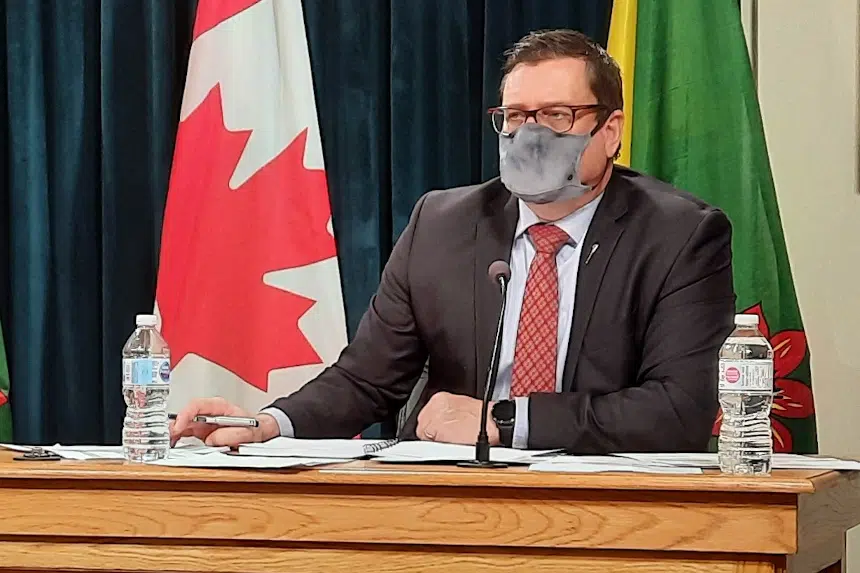Saskatchewan’s premier and health minister both are expecting hospitalizations to keep going up while the province goes through a fifth COVID-19 wave and — while not putting in any new health measures — they are working already to mitigate the effects.
Health Minister Paul Merriman said currently, while hospitals in larger centres like Regina and Saskatoon are working at or over capacity, the capacity in rural areas is more like 70 per cent. So the government is looking at moving patients to ease the strain.
“It doesn’t make any sense for us to be in a position where we’re over capacity in Saskatoon and Regina yet there might be another hospital out in the system that isn’t at capacity,” said Merriman.
The health minister explained health authorities have to start using rural capacity.
“I know rural Saskatchewan is already stretched as far as some staffing challenges out there, but we need to be able to utilize those beds. I know the people on the frontline will be able to rise to the occasion,” said Merriman.
This isn’t happening immediately, and Merriman said patients wouldn’t be moved without talking to them and their families first. But he said if hospitalizations keep going up, the government will have to consider it.
“We have to make sure that we’re looking after overall patient care to make sure that all patients are receiving a quality of care that they expect within our health-care system,” said Merriman.
During the Delta wave, Saskatchewan peaked at 356 hospitalizations, according to Merriman. As of Monday, there were 262 people in hospital right now — some there because of COVID and some there for another reason who just happen to have COVID.
Merriman believes there is room and health officials are prepared for more people entering the hospital system.
“We’re trying to make sure that we have all hands on deck ready for what we could be experiencing. We’re not experiencing that now. The hospitalizations have increased … but on the COVID-related illnesses, they are fairly stable in that 100 to 115 range,” said Merriman.
In addition to making room with beds, the government is looking to create room on the health-care worker side.
Last week, the province sent a letter to all public service workers trying to gauge how many would be willing and available in non-medical roles to fill in when and where there might be a surge and a need.
Merriman said it’s something the government has done before in the pandemic.
“Every time that we’ve had to be able to do this, like other provinces across the country, we get a little bit more refined on it on what we need and where we need these individuals,” said Merriman.
He said if necessary, the government wants to do it strategically and surgically.
“We have reached out to the public services as well as lots of retired people (and) non-traditional immunizers. We’ve reached out to all of these individuals to be able to prepare for what could be coming,” said Merriman.
The government is also looking internationally to see if it can move up the certification queue for nurses who’ve applied to work here.
“Can we get them certified in a safe manner, making sure that we’re maintaining the integrity of the health-care system and the quality of care that our patients are expecting, but can we get them moved up faster?” Merriman said.
Premier Scott Moe said the government is making every effort to support frontline health-care workers. He also said hospitals are full, and that’s true across the country, but also since before the pandemic.
Moe quoted numbers on Monday saying that in the last quarter of 2019 there were 2,200 patients in the hospital system, but right now there are 1,825.
“Our health system has been one that has generally been operating at close to 100 per cent capacity,” said Moe.
This, said Moe, is one of the reasons he and other premiers have been pushing the federal government to increase federal health transfers and be what he called a full funding partner.











